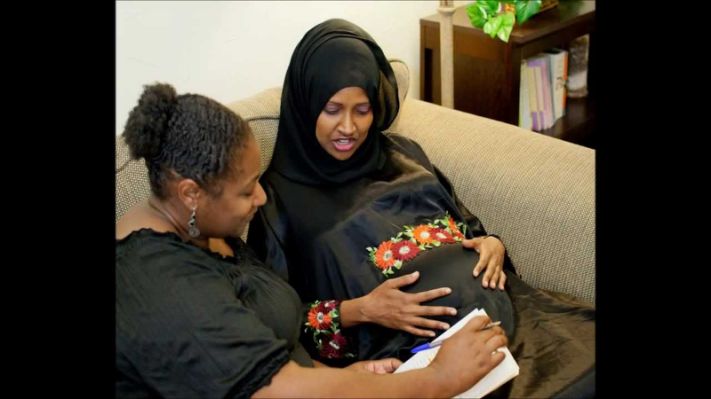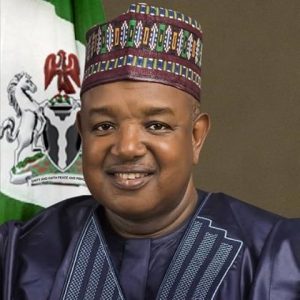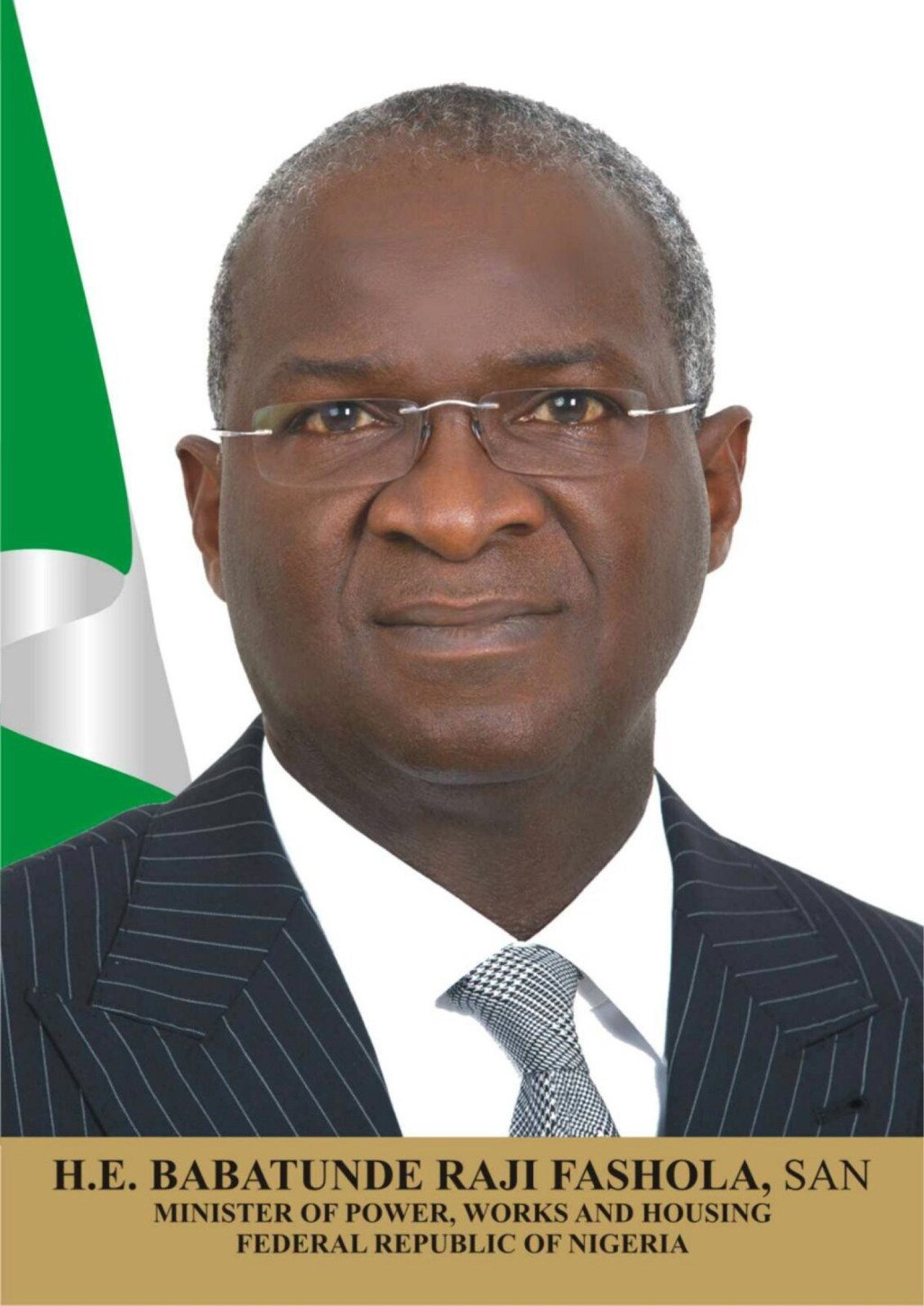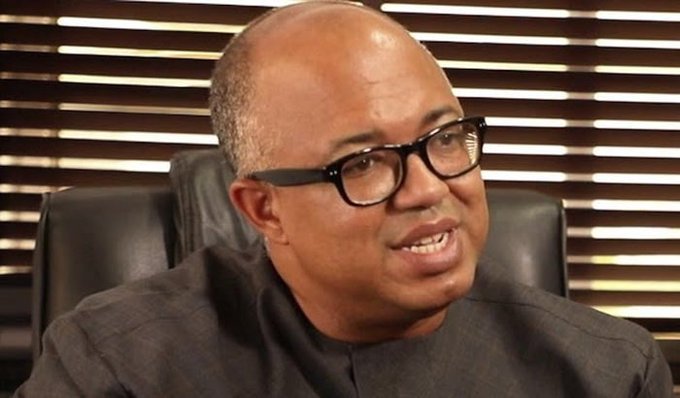Groups
-
adminposted in News & Trends • read more

By Abujah Racheal
The Nigeria Health Watch, a nonprofit organisation, says community Maternal and Perinatal Death Surveillance and Response (MPDSR) will help to reduce maternal deaths rate in the country.
Mrs Vivianne Ihekweazu, Managing Director, Nigeria Health Watch, made the assertion in an interview with the News Agency of Nigeria (NAN) in Abuja on Saturday.
The World Health Organisation (WHO) says maternal mortality or death is the death of a woman while pregnant or within 42 days after the delivery or termination of a pregnancy.
WHOs records show that Nigeria accounts for nearly 20 per cent of global maternal deaths.
Ihekweazu said that MPDSR would provide an avenue for stakeholders and decision-makers to be aware of the causes of maternal deaths and address them.
She noted that as a framework for monitoring maternal deaths, it would ensure the timely reporting and surveillance of women dying while giving birth in communities.
According to her, an 18-month long programme for maternal deaths in Nigeria was launched in January 2019, under the theme: Giving Birth in Nigeria.
It was implemented by a consortium of Africare, Nigeria Health Watch, and EpiAFRIC.
The programme, supported by funding from MSD for Mothers, was implemented to investigate why women die while giving birth
It is done to create a sense of urgency and use the data and insights from the review to catalyse accountability for the death of every woman in the country, she told NAN.
Ihekweazu disclosed that the results of these findings were analysed in a community-informed maternal death review, the Why Are Women Dying While Giving Birth in Nigeria? report.
The Health Watch MD said that the report highlighted Nigerias high maternal mortality burden.
It emphasises on the prevalence of maternal deaths in communities, where there have been no previous systematic attempt to ensure that out-of-facility deaths were integrated into any routine review or what was formally known as MPDSR.
In Nigeria, the Federal Ministry of Health adopted the MPDSR in November 2016 .
However,state-level implementation of MPDSR is inadequate because it is focused on facility-based maternal deaths alone and sub-national MPDSR committees are unable to effectively turn the data into action.
Consequently, this gapfueled the Giving Birth in Nigeria programmes approach to carry out the review of maternal deaths in communities.
This is with the involvement of family decision-makers, traditional leaders, religious influencers, health workers and government-level officers in inquiries, awareness and dialogue, she said.
Ihekweazu noted that the Community MPSDR, as recommended by the report, was key to reducing maternal deaths in the country.
Following the findings of the report, the following recommendations were presented for reducing maternal deaths in Nigeria.
State governments should leverage traditional and religious leaders to build upon existing socio-cultural structures to speed up accountability for maternal deaths at the community level.
Governments at all levels should put in place sustainable structures in local communities, so that community maternal death reviews are implemented and included in state-level MPDSR efforts in health facilities.
Maternal health advocacy should be implemented at the community level through partnerships with existing local government health education departments and community leaders, Ihekweazu said. (NAN)
Source: NAN News
-
adminposted in News & Trends • read more

His legal team, led by former New York Mayor, Rudy Giuliani, had approached the Middle District Court of Pennsylvania alleging that 1.5 million mail-in votes in the state were illegally counted.
Brann berated the Trump lawyers for filing a disjointed lawsuit, adding that he would not disenfranchise almost seven million voters on baseless allegations.
Source: NAN News
-
adminposted in News & Trends • read more

The Kebbi Governor, Alhaji Atiku Bagudu.By Muhammad Lawal
The Kebbi State Government has launched a Data Capture Portal under the State Ministry for Information and Communication Technology to boost employment opportunities for youths across the state.
The portal, www.dcp.kebbistate.gov.ng, would also enable youths to benefit from the various interventions by the Federal Government and other organisations in the country.
Speaking during the event in Birnin Kebbi on Saturday, the State ICT Commissioner, Alhaji Abdullahi Muhammdu-Magoro said the gesture was part of governments commitment to ensure development in all sectors.
He said that the portal was launched in order to collate accurate data of all unemployed, educated and uneducated youths in the state, adding that registration is free-of-charge.
He said: The State Government is poised to having a robust and efficient database of all the unemployed youth in the state, hence, allow for better planning.
The data will be captured so that when the opportunities abound, more qualified youths will benefit from such interventions from the Federal Government and other Development Partners.
We have already successfully conducted registration exercise like those of N-power and NYIF. With this portal, more of our youth will benefit.
Magoro further explained that arrangements were made to ensure that both the educate and uneducated people benefit from the registration.
We have made arrangements with some designated business centres in all Local Government Areas and internet cafes for the uneducated youth to go and fill forms.
Their data will then be uploaded into the portal, hence they can as well benefit when the opportunities for such jobs and interventions come, the commissioner added.
He acknowledged the contributions of the CBN, NOA and NIMC among others, saying that such support had facilitated the successful take-off of the portal.
Also speaking, the Wazirin Gwandu, Alhaji Abdullahi Umar, said that the gesture would greatly reduce unemployment in the state.
He described the youth as the backbone of any society, stressing that no efforts to provide employment opportunities for them was too much.
Umar urged the youth not to miss the opportunity provided by the state government in upgrading themselves.
I am happy to be part of this occasion in view of its importance to the target beneficiaries, the youth.
I am also happy to hear that Kebbi State is the first state in Nigeria to come-up with this free of charge, he said.
The State Chairman of Nigerian Association of Small and Medium Enterprises, Alhaji Nura Bello, said the youth in the state never had it so good.
He said youths have benefited immensely from interventions from both the states and federal government, saying that SMEs across the country have witnessed boom. (NAN)
Source: NAN News
-
adminposted in News & Trends • read more

Mr Babatunde Fashola, Minister of WorksBy Grace Alegba
The Minster of Works and Housing, Mr Babatunde Fashola has directed Julius Berger, the contractor handling section one rehabilitation/reconstruction of the Lagos-Ibadan Expressway to speed up construction ahead of the Yuletide.
Fashola while inspecting the highway on Saturday, told the Julius Berger team after taking their project presentations to hurry construction ahead of the Yuletide.
He urged the contractors to liaise with the Federal Controllers of Works in Lagos and Ogun States towards fixing important sections to make the road motorable, safe and free of traffic congestion.
The minister also urged the firm to improve the quality and spread of signages and diversion signs around the construction zone and accelerate work towards Christmas celebration.
Fashola urged the contractors whose section spanned from Ojota in Lagos to Sagamu Interchange to make the construction wear a human face that addressed hardship of road users.
Understand that you do it for people and we want a sense of compassion. Plan with the controllers of Lagos and Ogun, he said.
In their presentation the Managing Director, Julius Berger, Mr Lars Richters alongside his project manager, Mr Thomas Christl took turns to explain efforts to speed up construction in spite of reckless driving and high traffic volume.
The duo also explained progress recorded on bridges and other construction on various sections of the highway.
The firm also raised issues of Right of Way Compensations that were yet to be paid, thereby slowing down construction on some sections.
The firm lamented impatience of road users compounding gridlock on the highway.
Here we are on good progress, the project manager said.
The News Agency of Nigeria (NAN) reports that the firm commended Fasholas revolutionary achievements in the nations infrastructure development, and gave him an award on the project site.
Meanwhile, the Director, Federal Highways South West, Mr Adedamola Kuti also said that Julius Berger and RCC working on section two of the highway, had both been directed to carry out palliatives ahead of yuletide to make the highway smooth.
While inspecting section two of the highway which spanned from Sagamu Interchange to Ibadan, the Federal Controller of Works In Ogun, Mr Umar Bakare explained details of construction works on their project site.
So far the contractor has achieved 51.6 per cent in the construction of the road. They have completed over 43 kilometers on Lagos and Ibadan bound from change 101 717 to change 57 plus 750.
The project has been completed from around Guru Maharaji area in Ibadan up to others here where you have the trailer park. It has been completed substantially, he said.
Bakare explained that the two carriageways had been completed to final layers within the section, adding that, other sections were on various levels of construction.
He assured that all sections would be made motorable on the project that had created over 400 direct jobs and over 1,450 people directly benefiting from the project.
He explained that over 20 million litres of diesel, over 30,000 tons of cement, over 1,000 tons of steel which had created indirect opportunities for citizens, adding that the contractor also took supplies of stones even though it had its own quarry.
He lamented activities of trucks blocking the Oghere side of the highway making the site inaccessible, but noted that a taskforce had been trying to curtail the excesses of the drivers causing gridlock.
The Managing Director of RCC, contractors on the project, Mr Nabeel Esawi, assured that the firm planned to open all diversions before Dec. 22 after making the road motorable.
He said that the road had been completed to final asphalt on some sections with 51 kilometers on the Ibadan bound and 44 on the Lagos bound carriageway.
Our programme of work this dry season is to complete 43 kilometers for both sides to have at least from 43 to 103, 60 kilometers completed on both sides. That is our programme we want to achieve up to May 2021, he said.
Mr Uche Orji, Managing Director, Nigeria Sovereign Investment Authority (NSIA)
said the inspection was part of a fact finding mission on the project while explaining the funding.He called for patience during the construction of the road where highest quality standards were being adopted, adding that the road will be tolled upon completion. (NAN)
Source: NAN News
-
adminposted in News & Trends • read more

Gov. David UmahiBy Collins Yakubu-Hammer
Chief Oluchukwu Ezeali, Commissioner for Project Monitoring and Evaluation in Ebonyi, has said that Governor David Umahis defection to the All Progressive Congress (APC) would enhance national unity.
Ezeali told the News Agency of Nigeria (NAN) on Sunday in Abuja that the governors movement from the Peoples Democratic Party (PDP) to the APC would also benefit the South-East geopolitical zone.
For the past two months, Umahi has been in the news for good reasons. His outstanding performance has challenged the political status quo by raising salient issues of equality, fairness and justice in our nation.
It is no longer news that the PDP is now in a battle of survival with the defection of Umahi to the APC.
He governs one of the least populated states and receives the least allocation in the Federation. One would have thought that he will be inconsequential to the debates on expectations from the 2023 elections, but recent events have proved otherwise.
It is clear to see that Umahi was simply being resolute in making demands from a political party that has been served by the entire Igbo nation for 22 years.
In the absence of favourable considerations, new alliances have to be formed for the good of the people. Today, Umahi has emerged a hero of our democracy rather than the villain.
Desperate and manipulative forces would have preferred to cast him as a villain which is far from the real truth.
Umahis movement to APC is to attract more dividends of democracy to the entire South-East and also to enhance national unity and development in Nigeria.
This is what the South-East wants and he has done what his people are proud of. They are very happy with his decision to join a party that will take Nigeria to the promised land, Ezeali said.
He said that it was in the interest of Nigeria that the South-East was given the chance to produce the nations President in 2023 to complete the official policy of Reconciliation, Reconstruction and Reintegration.
According to him, Umahis demeanour has always been one of public good over individual benefit.
That is why he chose to foster a cordial relationship with the President Muhammadu Buhari administration despite previously belonging to the opposition PDP.
This candour has given him the support required to achieve much in Ebonyi and also earned him love and admiration across the country.
As a new chapter opens in the accomplished political life of Umahi, his tall vision for a better Ebonyi, a united Igbo land and a stronger Nigeria is sacrosanct, Ezeali declared.
NAN reports that Umahi, who is serving a second term as Ebonyi governor elected on the platform of the PDP, recently defected to the APC, citing injustice to the South-East zone by his former political abode that ruled Nigeria for 16 years. (NAN)
Source: NAN News
-
adminposted in News & Trends • read more

Cricket: Team Red Genes emerge champions of maiden Girls Aspire tournamentBy Ijeoma Okigbo
Team Red Genes have emerged champions of the maiden edition of Girls Aspire Sport Initiative (GASI) Cricket tournament.
The tournament, held at the Javino Model School, Gauraka, Niger state, was organized by GISA and supported by the Nigeria Cricket Federation (NCF).
The seven-aside tournament had students of the school split into three teams -Red Genes, Green Teens, Blue Wolves compete against themselves for the coveted trophy.
In the finals, Red Genes defeated Green Teens by 5 wickets.
Genes won the toss and elected to bowl. Teens scored 32 runs for the loss of 2 wickets while the second innings saw the Red team score 36 runs in 2.3 overs for the loss of no wicket.
The other team, Blue Wolves, couldnt secure a place in the finals as they lost to Green Teens earlier.
Red Genes captain, Evelyn Oleka, a 15-year-old student, said she was excited about the victory. We are happy to have won. We played like a team and we got the result.
We are looking forward to more tournaments where we can continue to develop our game, Oleka said.
On her part, Ijeoma Okigbo, the coordinator of GISA, said the aim of the event was to promote the participation of girls in the sport.
The idea is to create a level-playing ground for everyone in sport. A girl can participate and enjoy sport as much as a boy can.
We need to educate girls and parents, especially at the grass root level on the need to promote girls participation in sports, Okigbo said.
Meanwhile, Emeka Igwilo, General Manager of NCF, while appreciating the efforts of GISA, said the federation hopes to make cricket a community sport.
You are playing a modified form of cricket and this form of cricket is encouraged at the grassroot.
We are looking at making this community a hub for cricket, where people around this place will welcome cricket and enjoy it like they do in any other sport, Igwilo said.
Also at the event, ace broadcaster Ndubueze Chidioka, who also doubles as the Chairman of the FCT Sports Writers Association of Nigeria (SWAN), encouraged the kids to continue to play and enjoy the game.
This is the way stars are made. At your spare time, you can get an improvised bat and play. You can also watch the game on television. Thats how you learn and get better, he said.
The event also had other NCF big wigs in attendance; Taiwo Oriss, Secretary General of NCF, as well as Chimezie Onwuzuluike, FCT Cricket coach, Peter Yakubu, the North Central Regional Development Officer.
Also in attendance were Coach Sabo Shanga-Marafa of the Niger State Cricket Association, Okey Onwudiwe, NCF staff, and Ikenna Okonkwo, Secetary of FCT SWAN, amongst others. (NAN)
Source: NAN News
-
adminposted in News & Trends • read more

Lagos State Governor, Mr Babajide Sanwo-Olu.By Kazeem Akande
The Lagos State Government is set to establish Youth Affairs Department in all Local Government and Local Council Development Areas (LCDAs) of the state.
Saheed Akanbi, Senior Special Assistant on Youth Matters to Gov. Babajide Sanwo-Olu, disclosed this on Sunday in Lagos at the 3rd Annual Media Retreat of Conference 57.
The News Agency of Nigeria (NAN) reports that Conference 57 is a forum of chief press secretaries of all local councils in Lagos State.
The governors aide said that the youth department at council levels would help fasttrack development across the state.
Effort is in progress, as there is need to establish youth affairs department in all local governments and LCDAs to make the job more easier.
So that if theres anything happening in any council concerning the youth, it will be easier to contact supervisor on youth affairs in that council to fix the development collectively.
At the same time, the department will ensure that the plight of the youth are properly taken care of at the grassroots levels, he said.
Akanbi also said that there was need to review the remuneration of media aides of all council chairmen in the state.
He said that reviewing their remuneration in terms of salaries and offices would assist in bridging the gaps between the residents and the councils.
Akanbi, however, advised the spokespersons to be loyal to the councils and ensure that its activities and programmes were properly publicised to the residents.
Mr Emmanuel Bamgboye, Chairman, Mushin Local Government, in his remark, urged the media aides to be proactive in disseminating information to the public.
Your job is very valuable, this is the era of information, we need publicity in all levels of government.
We appreciate what you are doing but continue doing more of it with loyalty, which is very important and we will continue to appreciate you, the council boss said.
He urged the media aides to cooperate with their bosses and give adequate publicity to allow the residents know the level of development in the community.
Mr Oseni Ajimomuya, Chairman Conference 57, said measures were in place by the association to curb the menace of fake news in the society.
Our major crusade in this regard is to enlighten the masses on the negative impact of fake news across various social media platforms.
Thats why we tag this years retreat, Going Digital: An essential move in a Post COVID-19 World and Combating Fake News, he said. (NAN)
Source: NAN News
-
adminposted in News & Trends • read more

Rural Housing, Foundation donates to communities in EbonyiBy Christian Ogbonna
A Non-Governmental Organisation, Ebele and Anyichuks Foundation has provided 77 buildings to indigent persons and families in Isu community, Onicha Local Government Area of Ebonyi.
Mr Christian Onu, Coordinator of the foundation in Ebonyi, said during a site tour of the projects in Isu community, that the houses include: duplexes, bungalows, church buildings, five, three and two bedrooms apartments.
Onu said the essence of the project was to improve rural housing development, especially for the people in need, including the widows in the area.
He explained that the cost of the five, three and two bedrooms apartment located in different parts of the community is over N10 million.
Yes, none of the building cost below N10 million, especially the five, three and two bedrooms apartments. The churches and other duplexes, cost more than N10 million.
We have gone round and we have seen that some of the houses are already completed and some are over 90 per cent completion. The essence of the tour is to ensure that the contractors meet with the Dec. 31 deadline.
The founder of the foundation is a grassroots person and he knows how to relate with people, even those that are not from his community.
The projects are targeted at those in need, especially the widows, the poor persons, to alleviate their suffering, Onu explained.
Traditional ruler of Isu community, Ambrose Ogbu, said the gesture was a welcome development from Ebele and Anyichuks Foundation to make life meaningful for the people.
Ogbu, who is also a beneficiary said he was happy to see the new gigantic building in his palace and prayed God to continue to preserve the founder, Mr Ifeanyi Chukwu Odii.
Mrs Amara Chukwu, a widow and a beneficiary thanked the foundation, adding that before her new accommodation, she was living in a public house with her four children.
The foundation is also taking care of my children now, I am lifted up by God. I thank the foundation, especially the founder, she said. (NAN)
Source: NAN News
-
adminposted in News & Trends • read more

Train on Abuja-Kaduna routeBy Lucy Ogalue
The Nigerian Railway Corporation (NRC) has apologised to passengers that boarded the Abuja-Kaduna train which broke down due to failed locomotive along the route on Saturday.Mr Fidet Okhiria, NRCs Managing Director, in a statement pledged NRCs commitment to ensure there was no reoccurrences of such incident in the future.
Okhiria also assured Nigerians that the failed locomotive would be fully operational on Monday.
The locomotives turbocharger failed and we apologise for that. We are working hard to avoid such occurrences in future and by Monday the train service would be operational.
The News Agency of Nigeria (NAN) reports that on Friday an Abuja-Kaduna train broke down, leaving passengers along the route stranded.
Source: NAN News
-
adminposted in News & Trends • read more

NCDC responds as Yellow fever claims 76 lives in 3 statesBy Abujah Racheal
Nigeria Centre for Disease Control (NCDC) says it has launched a #COVID19NigeriaStories blog to document Nigerias response to the Coronavirus (COVID-19) pandemic.
The Director General of the centre, Dr Chikwe Ihekweazu, made this known in an interview with the News Agency of Nigeria (NAN) on Saturday in Abuja.
He advised Nigerians to log on to covid19blog.ncdc.gov.ng to read about the people behind the response.
Ihekweazu added that as Nigeria continued to respond to the novel Coronavirus pandemic, it was important to document the process and inform the public.
He said: we cannot handle future public health emergencies without applying lessons learnt from the current pandemic.
This is why documenting #COVID19NigeriaStories is important.
According to him, many sectors have worked with great coordination to develop and implement Nigerias COVID-19 response.
The NCDC boss, who explained that the #COVID-19NigeriaStories explores different state level responses to COVID-19, added that it is interesting to learn how different states are responding toward tackling the pandemic.
Ihekweazu noted that the blog documentation projectwas being handled by Nigeria Health Watch, with support from Ford Foundation. (NAN)
Source: NAN News